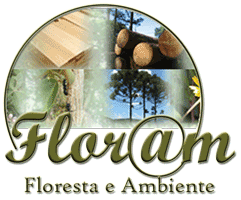ABSTRACT
Some Amazonian woods are considered highly resistant to the attack of microorganisms; however, which ones present the highest resistance is unknown. This study aimed to evaluate the natural resistance of seven woods to xylophagous termite Nasutitermes octopilis through a no-choice feeding assay. The following wood species were assessed: Dinizia excelsa, Manilkara huberi, Dipteryx odorata , Bagassa guianensis, Astronium lecointei, Caryocar villosum, and Hymenolobium petraeum (Ducke). To this end, five timber samples from the middle heart at breast height of each plant with dimensions of 2.54 × 2.54 × 0.64 cm (longitudinal × radial × tangential) were collected from sawmills in the municipality of Altamira, Pará state, Brazil, submitted to termite action under laboratory conditions, and had their mass loss and wear assessed, with five replicates. A. lecointei showed the lowest resistance, whereas C. villosum and D. odorata presented the highest resistance.
Keywords:
biodeterioration; xylophagous termites; no-choice feeding assay; Amazonian wood
